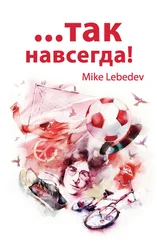While the captain rummaged in the drawers for the address of Grandfather II’s correspondent—if still alive—I thought about those things; once, when I was with a woman, I realized that we were both tired people who looked with pity upon our own bodies, and our embrace had a taste of that pity; we had lived so long that the only object from the past we had was the body: another city, another apartment—the body lives longer than contemporary objects made to be replaced. I wanted so much to tell it: here we are all alone, pal; here we are alone … I thought about things and the loneliness of man among them; of the fact that a person can be described as a selection of his important objects—but when someone else comes to this selection, what is he going to do? Create a puzzle out of a wristwatch, a cigarette case engraved From your coworkers , a wedding ring, and a validated ticket? And here I stand among lost objects when all I need is a person—one who might know and remember; I do not trust objects.
The captain told me the address; the person I sought had moved from Red Kolkhoz Street. Then he suggested I take a look at the finds—if I liked something, I could buy it; sort of like a pawnshop, said the captain. I said no; he kept trying to interest me in a fishing rod left on a bus; he spun the gilt-edged lure and triple hook, showing me how the fish would swallow it; the pole was pathetic, homemade, but the captain took that into account, making up a story about how tackle that doesn’t look like much is really the best; the captain was a bullshitter, he spent the day among rubbish, trying to sell it and waiting for success—what if some fool brings him something truly valuable; at the door we ran into the next visitor with something under his arm; the captain bustled and rushed me out the door, these were probably stolen goods for sale. I gave the captain some money, he perked up and stopped rushing me, the money received as a bribe equalized me with the rest of his visitors and created a relationship—I gave, he took—and he probably wanted to introduce me to the petty thief, out of boredom, to see what would happen.
It was sunny. The city authorities had started the fountains six weeks late and the pipes were not yet cleared; rusty, murky water rose to the sky; I bought an ice cream and then the captain caught up with me. “Lunch,” he said. “Shall we have lunch?”
We went to a café; over lunch the captain asked me in a seemingly confused way but actually quite cautiously why I was looking for that person; seeing that I did not understand where he was going, the captain spoke more clearly: in this town many old men have a lot of money; if someone, for example, had a good job in the business sector, he retired a millionaire; kickbacks, accounts, faked documents, construction materials sold on the side—there were plenty of ways of getting rich, the mining plant was too big, too dark and convoluted even for the people managing it, and “many, many”—as the captain repeated—managed to use their jobs to their advantage. And if I, say, were looking for that kind of man, being related to him in some way, and having expectations of money, then I should get myself some friends first.
The captain told me as an aside the story of a young city slicker who asked him for an address, he had come for his inheritance, but, alas, he never got it—something happened to him. “I gave him the address all right,” the captain said, “but he refused to have lunch with me.”
The captain was probably lying; he lied the way he ate—not concerned with the taste, hurrying to get it into his gullet and take another bite; in essence, he was chewing price lists, swallowing rubles, he wanted to have an expensive lunch at my expense; he was cowardly, the captain, used to looking over his shoulder and making do with small change; I noticed that the suitcases and bags at the lost and found had their side seams undone—the captain had sliced the stitching with a razor in case something was sewn into the lining. He was giving me a similar once-over; but it was clear that the captain was not alone, he could get in touch with others and make it seem that I really was a future heir.
It was too late to tell the captain I was only looking for someone who could tell me about the former camp warden; too late to pretend to be a historian or a journalist. The captain believed what he had made up about me, his guesses and fantasies were reinforced, and any attempt to be anyone but a seeker of inheritance would only make him suspect that I was trying to get him off track. The captain had waited so long among the old bags, among the card files, alone in his robber’s tower, had spent so much time buying up rags and stolen electronics, all small-time, all secretly, that now he saw me as his one and only sparkly, shiny, precious opportunity. I realized that believing his own fantasy, he would tell his fellow crooks I was a rich heir, not even realizing that he was lying; the captain ate olives, sucking the pits and neatly placing them on the edge of his plate; he was eating me, he was a local and I was a stranger, and he knew that very well.
I could only pretend to accept his offer; I was counting on his greed—he would pretend to have told the gang when in fact he would not because he knew that he would get nothing, being an idle blabbermouth; the captain replied that he would find out where I was staying and come visit me that evening. I got up, put money for both of us under the ashtray, into which the captain, smiling, dropped an olive pit.
I went to the address the captain had given me. In the nominal center of town there was a block of Stalinist houses; in Moscow they’re just a fragment of architectural history, one style among others, but here the Stalinist buildings comprised the only architecture there was. Wind, snow, and rain did not spare their excesses: the stucco moldings and decorative balconies were flaking, the white trim of the windows had vanished, and the wall paint had peeled; damp drafts filled the broad and high-ceiling lobbies, wind moved through vaulted arches, the concrete, lime, and brick crumbled, mold the color of pond scum covered the bottom of the walls, and moss spread in the cracks; rust dripped everywhere, and where the stone was broken the reinforcement rods stuck out, and in places you could see that the concrete was reinforced with tightly wrapped barbed wire instead of rods—they must have run out of metal.
That sight—a house built on barbed wire—gave me the feeling that the building was about to shudder, all poked through, riddled, and no surface would hold, no matter the brand of cement. The wire seemed to be breaking the house apart from inside, the way tree roots break through asphalt, and all the molding, the bas reliefs, the vases in niches were not enough to make me believe that this building was meant for living, for people. Animals have a good sense about this, and it was the case here: there wasn’t a cat or dog to be seen, a bird feeder dangled empty in the wind, and only rats rustled in the garbage cans.
There was something strange in this neighborhood, one detail—I couldn’t figure out exactly what—was disturbing me; something was missing from the sounds of the city, a note in the background noise was gone. I stopped, but the more closely I listened, the more I realized that hearing would not help; the answer was literally before my eyes. Here—the only place in town—the windows were not covered by light cotton curtains but thick, heavy brown or straw-colored drapes, probably weighted by dust, full of heavy folds like the skin beneath an old man’s eyes; the drapes covered the closed windows; no sound reached the street from the apartments.
The residents had shut themselves off from the air of the street, locked the wide entry doors; in their apartments, where the sunlight rarely fell, they tried to preserve the air of their dwindling days; in the diffused honey light at sunset, perhaps they dusted the lacquered furniture, enjoying the cognac-colored lacquer, the cut-glass crystal glasses in the sideboard, and the existence of well-crafted things took away the fear of their own impotence.
Читать дальше












